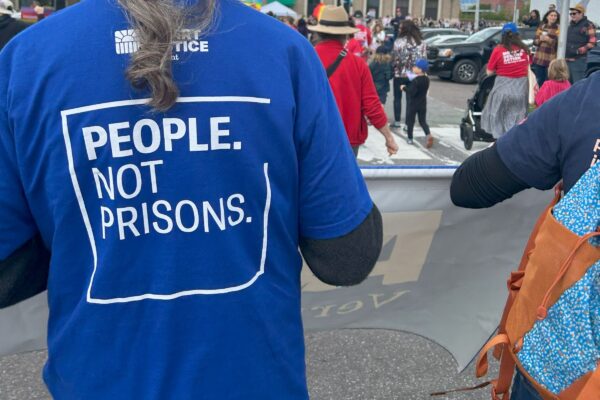This commentary was originally published on VTDigger on April 11, 2018.
Every day in Vermont we imprison people who have not been convicted of a crime simply because they are poor.
That may sound surprising, but it is the inevitable result of our cash bail system, where those accused of crimes must trade money for their freedom. If they don’t have the cash, it can mean days, weeks or months of pre-trial imprisonment.
In Vermont, around 400 people every day are incarcerated pre-trial, many because they cannot afford to pay bail. Even relatively short stays in jail can have cascading effects. Defendants lose their jobs, their cars, their homes, and even custody of their children, sometimes without having been convicted of a crime. Studies have shown that even low-risk detainees held for more than 24 hours are more likely to commit a crime in the future.
Poor people, people of color, and people with disabilities are all more likely to be jailed for lack of means to make bail. Nationwide, black people are assigned higher bail than white people, with bail for black men averaging 35 percent higher than bail for white men when controlling for seriousness of offense.
Besides undermining the fundamental principle of “innocent until proven guilty,” imprisoning those who can’t afford bail is enormously costly to the Vermont taxpayer — about $158 per prisoner, per day. That’s money spent jailing people who could instead be working and supporting their families while awaiting trial.
For these reasons, Vermont has joined states and cities across the country in the process of reforming their bail and pre-trial systems. In February, Philadelphia’s city council unanimously voted to end the practice of money bail. New Jersey eliminated cash bail entirely in 2017 and has already seen a nearly 20 percent decrease in their pre-trial incarcerated population.
Currently, Vermont’s Senate Judiciary Committee is considering a bail reform bill (H.728) that has already passed the House. H.728 makes some welcome improvements to Vermont’s bail system. It eliminates cash bail for certain low-level misdemeanors. It requires courts to consider a defendant’s financial means when imposing bail, and it changes the basis of imposing bail from “risk of nonappearance” to “risk of flight,” distinguishing those actively avoiding prosecution from those who might miss court appearances due to a lack of transportation or child care.
Unfortunately, the Vermont Department of State’s Attorneys and Sheriffs now wants to amend H.728 to roll back the elimination of cash bail for low-level misdemeanors and instead impose a $1,000 cap on bail for those crimes — an amount that would be cost prohibitive to many low-income defendants. If such an effort is successful, it will make bail reform into an empty promise, and poor Vermonters will continue to be detained solely on account of their poverty.
This is an attempt to undercut the meaningful impact H.728 could have in making our bail system more even-handed, and legislators should not allow that to happen. Instead, we should be considering ways this legislation could do more to decrease the substantial human and financial costs of pretrial incarceration.
First, the bill’s focus on a subset of misdemeanors will dilute its effect. Because bail is directed at risk of flight only, there is no reason not to include a wider list of misdemeanors and felonies.
Second, the House removed a provision ending money bail for violations of conditions of release. In many cases, those who violate conditions of release haven’t broken the law, but simply stayed out past curfew or missed an appointment. Violations of conditions of release is one of the most frequently charged offenses in our criminal justice system, so failing to include it would unnecessarily limit the bill’s intended scope.
Finally, we must do more to stop the imposition of unaffordable bail. Legislation currently under consideration in California explicitly forbids judges from setting money bail that results in the detention of a defendant due to inability to pay. A similar provision would improve Vermont’s bail system, effectively creating a sliding scale for bail based on income and recognizing that even small amounts may be insurmountable for the poorest defendants.
The Legislature has begun the process of creating a more equitable and fair bail process in Vermont, but if the bill is not strengthened, its impact will be severely limited. We need reforms strong enough to ensure Vermonters are no longer imprisoned because they are too poor to afford their freedom.




